A Unique Anime: When Psychological Family Drama Meets Medieval Fantasy
“Maquia: When the Promised Flower Blooms” is a captivating Japanese animated film that intricately weaves a psychological family drama within the rich tapestry of a medieval fantasy world.
The story centers on Maquia, a fifteen-year-old orphan belonging to the Iorph, a dwindling race of ageless beings. The Iorph live for centuries, retaining a youthful appearance, dedicating themselves to preserving the memories of the past, and shunning contact with the human world. When a neighboring kingdom invades their land, Maquia finds herself alone and lost. While wandering through the forest, she stumbles upon a ravaged nomadic camp and discovers a surviving infant amidst the carnage. Despite her own lack of maternal experience, Maquia cannot bring herself to abandon the child. She names him Erial and raises him as her own, with the help of kind villagers. As the years pass, Erial grows older and begins to realize that Maquia cannot be his biological mother, leading to emotional turmoil between them.
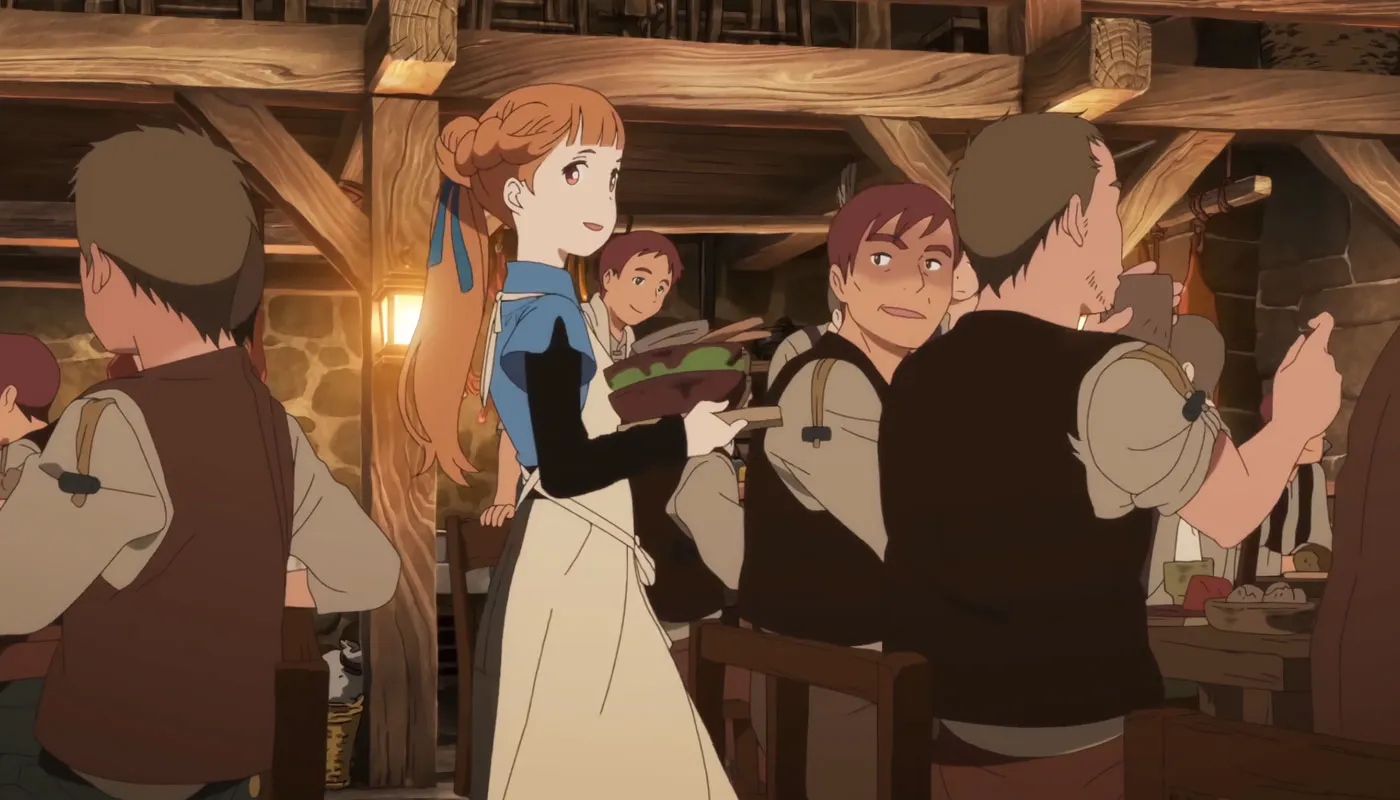
Mari Okada’s Directorial Debut
Mari Okada, who began her career in Japanese animation in the late 1990s, has become one of the most renowned anime screenwriters. She is incredibly prolific, contributing to numerous projects each year, primarily television series. However, she often serves as a literary adapter or screenwriter for other people’s ideas. “Maquia: When the Promised Flower Blooms” marks Okada’s directorial debut with an original anime film, a project she describes as “100% Okada.”
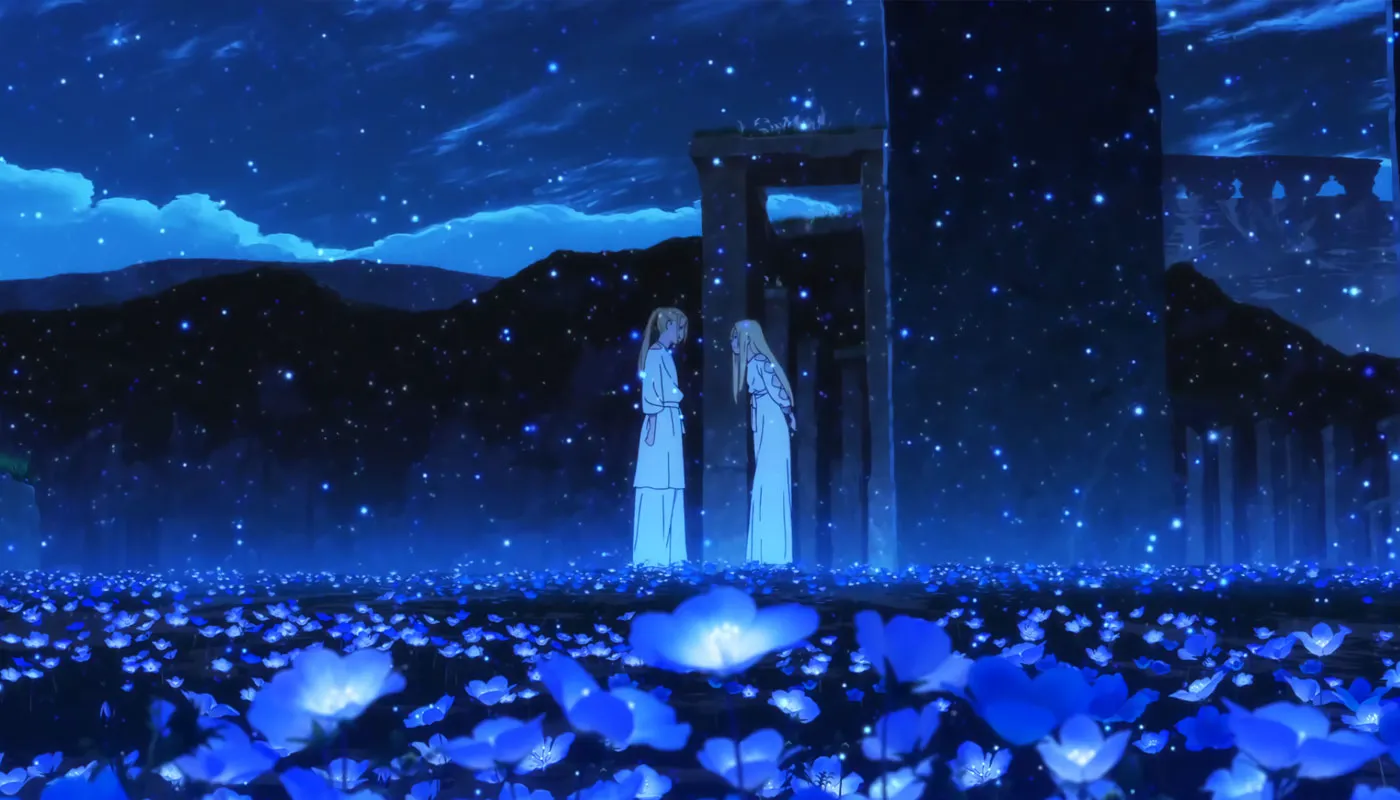
The characters in the film were designed by illustrator and designer Akihiko Yoshida, known for his work on the later Final Fantasy video games.
A Unique Blend of Genres
“Maquia” is not just an original film in the sense that it’s Okada’s own creation, but also in its unique blend of genres: a deeply personal family drama set against the backdrop of an epic fantasy world. The characters inhabit a world with dragons, swords, magic, castles, and courtly intrigue, but these elements affect them indirectly, as ordinary people rather than “chosen ones” destined to save the world. The film avoids the typical grand quest or the threat of an ancient evil.
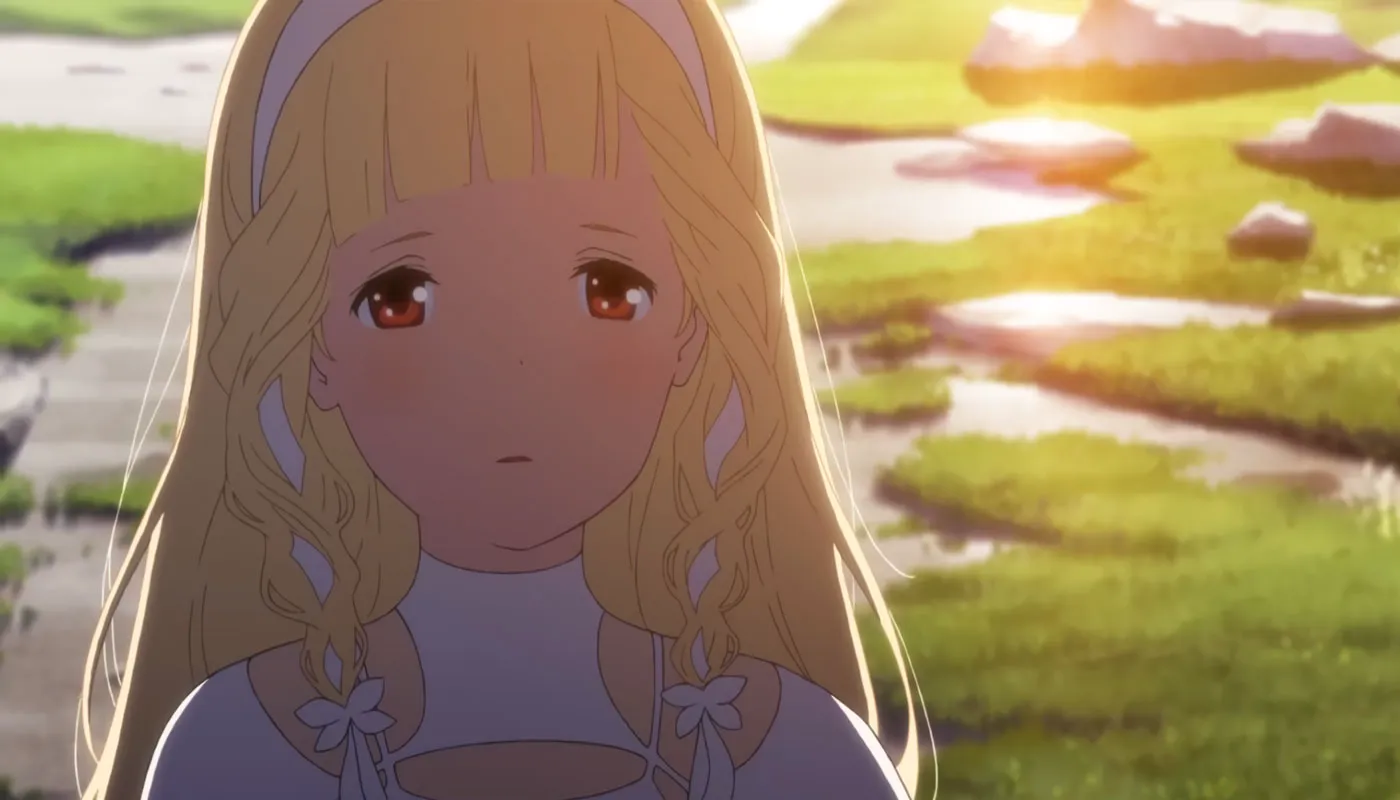
This is the first independent full-length film by anime studio P.A.Works, which primarily works on television series.
A Mother’s Love in a Fantasy World
Even the characters close to courtly life lack any sense of messianic purpose. Maquia, on the other hand, simply tries to survive as a single mother and raise her adopted son, who brings her both joy and pain. She works as a weaver and later as a waitress in a tavern, ordinary occupations for a woman in any world, real or imagined.
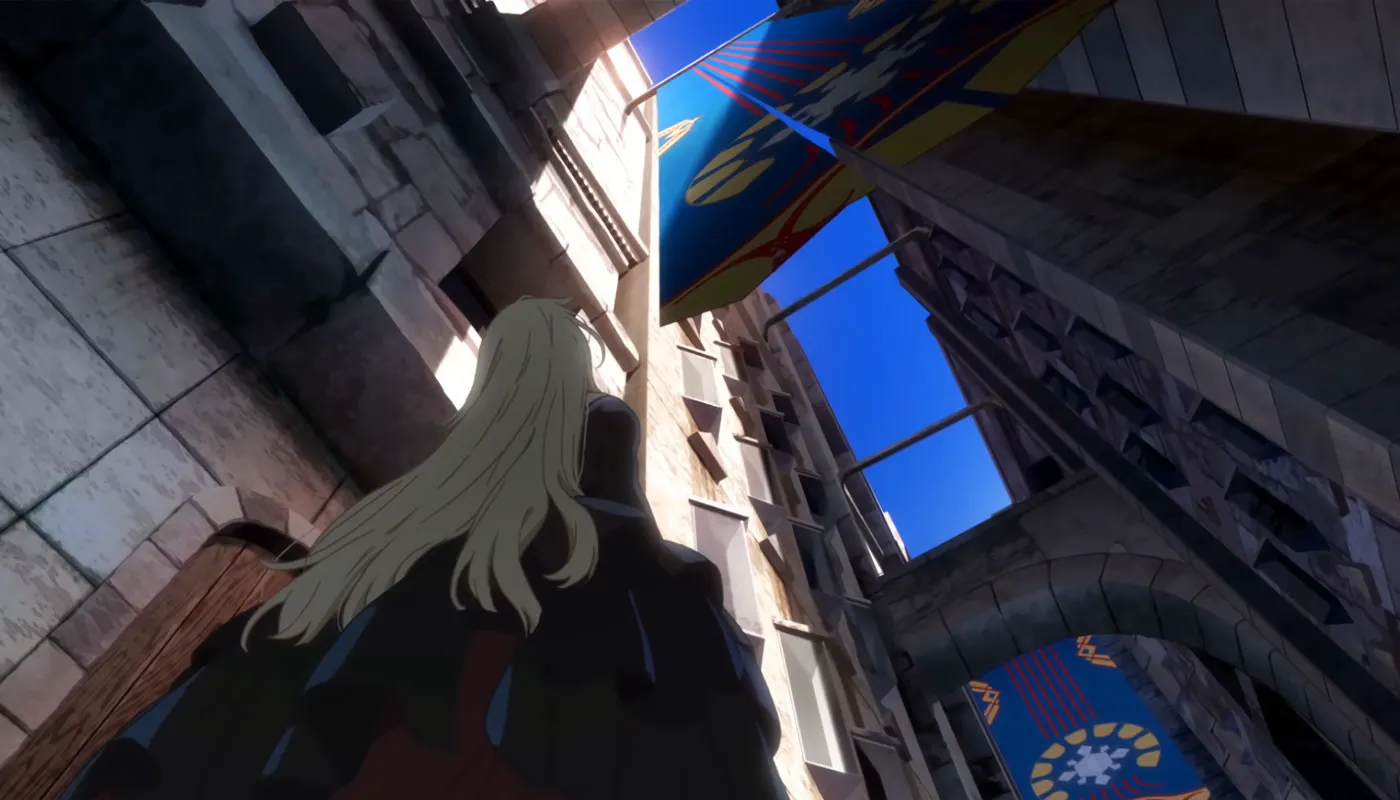
Don’t expect a Japanese “Game of Thrones.” While the film features a royal court, dragons, and large-scale battle scenes, these elements serve as a backdrop and a way to estrange a family story that could have been told as a realistic melodrama. However, that would have made the film far more conventional.
The presence of magical beings in the fictional world allows Okada to emphasize the biological differences between Maquia and Erial, which are difficult to overcome even with maternal and filial love. It’s hard to be a son when your mother looks like your younger sister, and it’s hard to be a mother when you know you will outlive your son and his descendants.
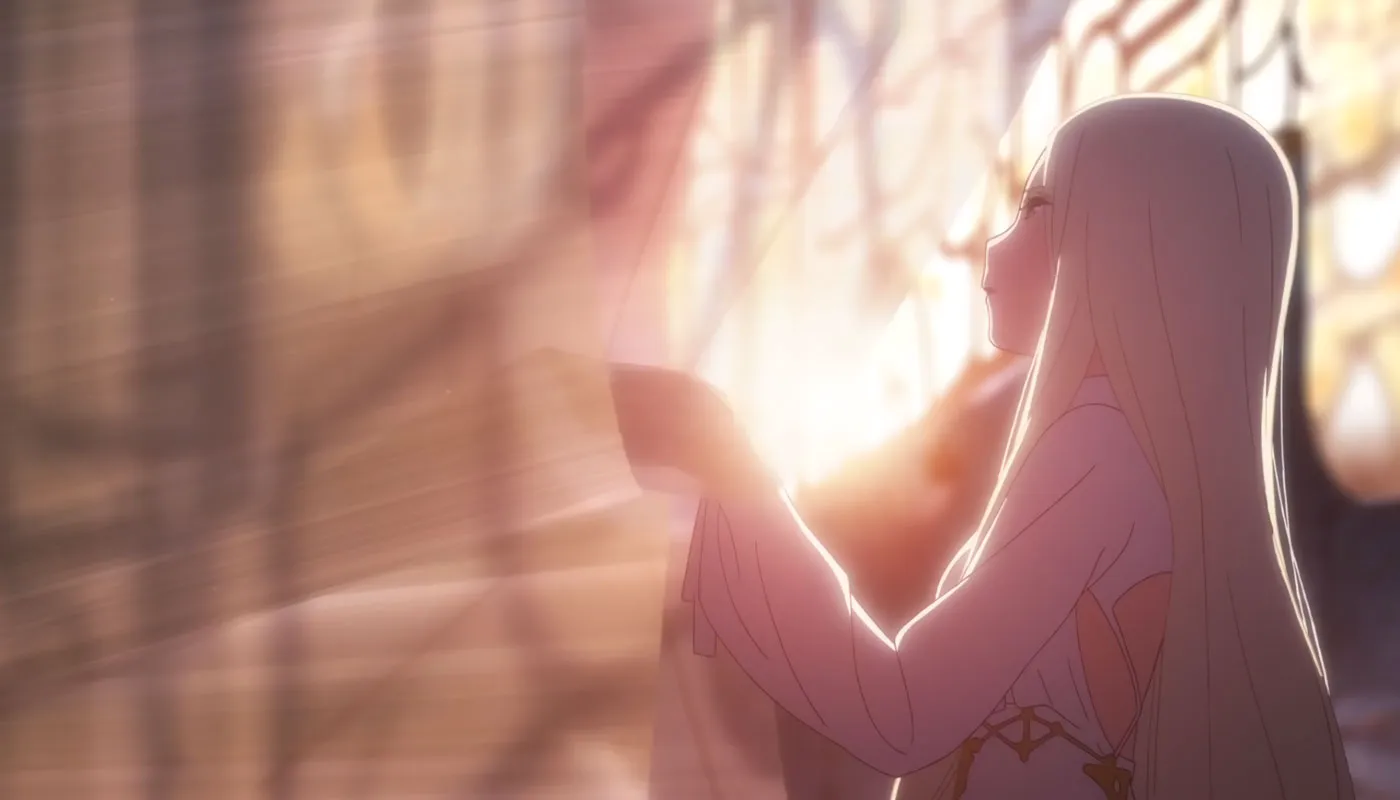
A Focus on Motherhood
Anime often targets children, teenagers, and young adults, rarely showing the world through the eyes of parents. “Maquia” is primarily an anime about maternal anxieties and concerns. While Erial plays a key role in the plot, he is ultimately a supporting character. Okada’s film is a tribute to all the unsung women who raise children alone and give themselves to them completely. Maquia is not portrayed as perfect, and she certainly doesn’t see herself that way. Erial’s teenage rebellion has its own validity. But many people would wish to have a mother as devoted and loving as Maquia. And among those people is the creator of the film.
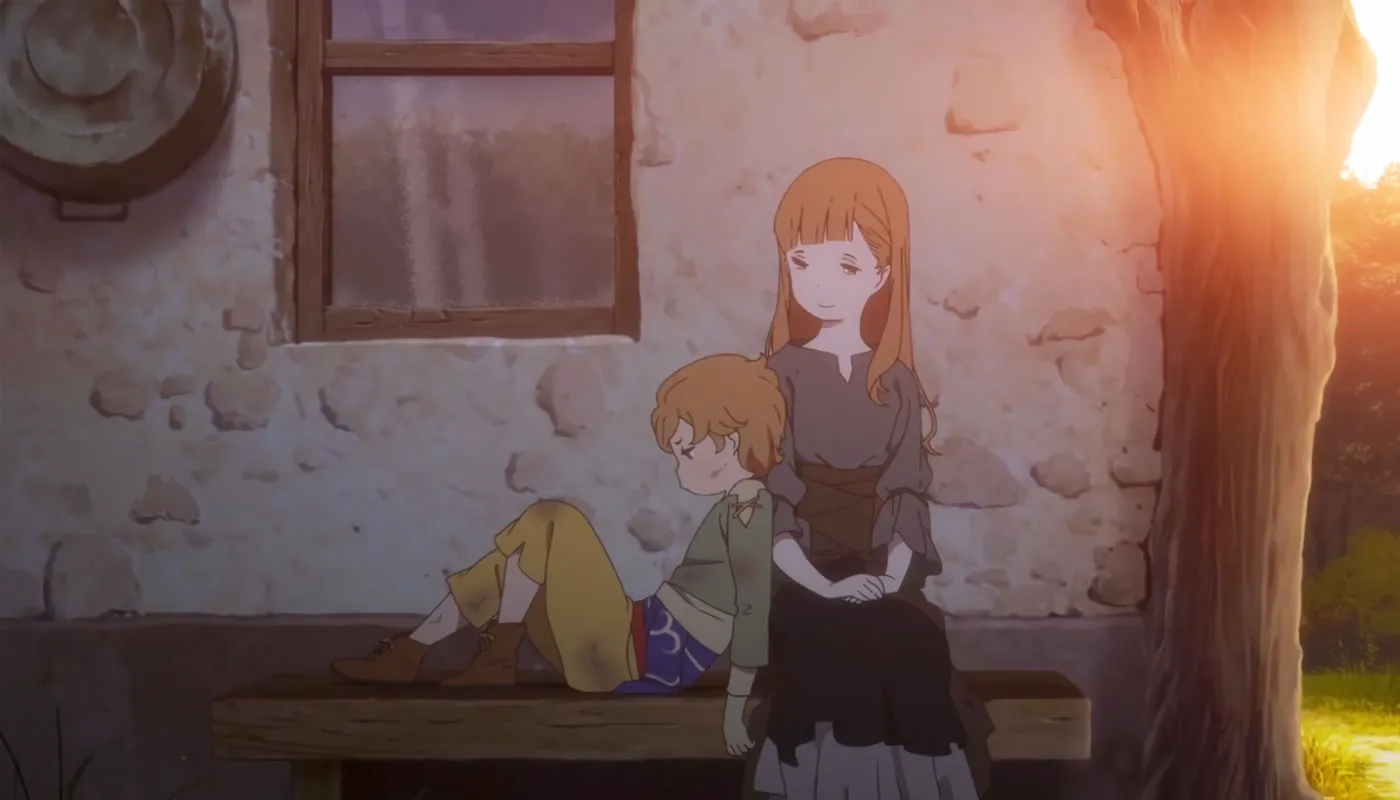
Okada recently published an autobiography revealing a difficult childhood and a strained relationship with her single mother. “Maquia” is inspired by those experiences, not as an attempt to vent, but as an attempt to understand and depict what it means to be a good mother and how difficult it can be to bear that burden. However, Okada also acknowledges that being the son of such a mother is not always easy, especially an adopted son.
An Emotional and Sentimental Journey
The film is emotional and unashamedly sentimental. The characters cry frequently, and viewers must decide whether to feel awkward or cry along with them. The closer you are to the themes explored in the film, the more likely you are to need a tissue.
Sentimentality is a plus for a melodrama, as is the complex, non-“cartoonish” psychology of the main characters and the beautiful hand-drawn animation, even if it’s not as picturesque as in the best cinematic anime (especially the films of Hayao Miyazaki). The film’s deliberate, almost meditative pace, which aligns it with “art house” cinema, where fast-paced action is often avoided, can be considered a drawback. Okada is a master of long-form television narratives, and the compressed, sprint-like style is unfamiliar to her. However, there is an artistic logic to the fact that a story spanning several decades of the characters’ lives doesn’t rush by but moves with the deliberation of an old-fashioned novel, taking up two hours of screen time.